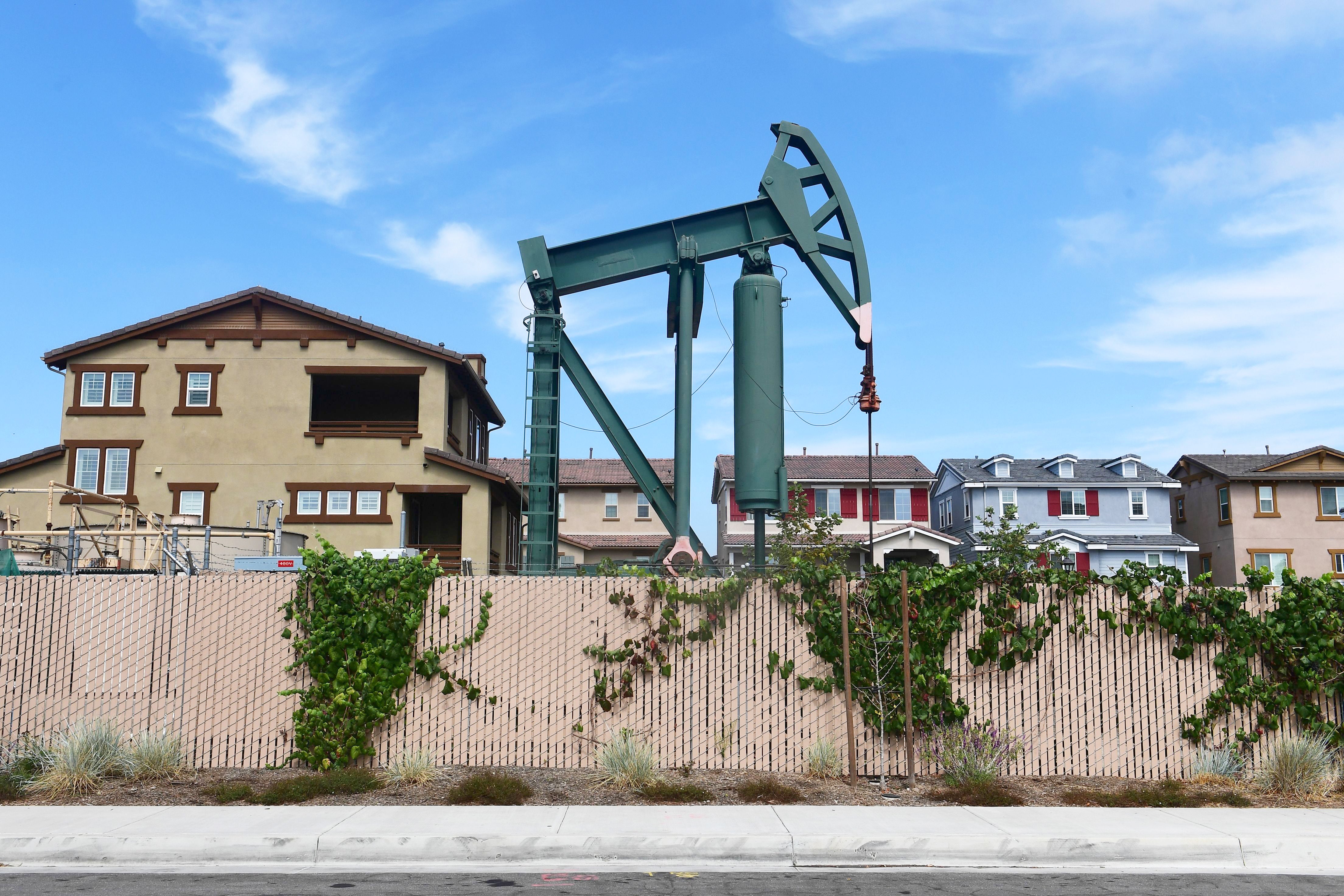
The Los Angeles City Council last week voted unanimously to ban new oil wells and phase out existing ones, a move leaders in the nation’s second-most populous city called essential for health reasons.
The council declared oil wells “non-conforming” with the city’s land use requirements. A city commission now will study how to phase out more than 5,200 existing oil and gas wells.
It could be done quickly for some, but others might take as long as 20 years, according to Councilman Paul Krekorian, a key backer of the oil drilling ban.
“Right now, 600,000 Angelenos live within a half-mile of an active oil or gas well,” Krekorian, a Democrat, said in an interview. “It doesn’t make sense in the 21st century to continue to produce oil and gas and create the enormous public health impacts that it has in the middle of one of the great cities of the world.”
There are hundreds of schools, senior centers and day care centers near oil and gas production, he added, and “for the sake of our communities, for the sake of the health of Angelenos, it was important that we made a clear statement that oil and gas production was no longer compatible with the communities of the city of Los Angeles.”
Krekorian and others on the council have been pushing oil drilling limits for several years. He introduced the measure in fall of 2020. But back in 2014, the council started looking at banning hydraulic fracturing, or “fracking,” and other well stimulation activities (E&E News PM, Feb. 28, 2014).
The council vote comes as California is looking at how to limit oil drilling. Gov. Gavin Newsom (D), in unveiling his draft fiscal 2022-23 budget earlier this month, said “we don’t see oil in our future.” The state’s Geologic Energy Management Division (CalGEM) last fall issued a draft rule prohibiting new oil wells within 3,200 feet of sensitive locations.
Newsom in 2020 said he wanted to phase out gas- and diesel-fueled cars and trucks and asked the California Air Resources Board to craft regulations to enact it. A draft rule that agency released in December would require that carmakers selling in California make 100 percent of their passenger cars and trucks plug-ins or other zero-emissions options by 2035.
Meanwhile, LA Mayor Eric Garcetti wants more clean cars on the roads in time for the 2028 Summer Olympics, which the city is slated to host. He wants electric and other zero-emissions vehicles to constitute 30 percent of cars in the city by that year. LA and surrounding cities in LA County are working on a plan to accelerate clean transportation options before the Olympics.
However, Rock Zierman, CEO of the California Independent Petroleum Association, said the state’s oil consumption isn’t dropping.
“Shutting down domestic energy production not only puts Californians out of work and reduces taxes that pay for vital services, but it makes us more dependent on imported foreign oil from Saudi Arabia and Iraq,” Zierman said in an email. “Imports are totally exempted from California’s environmental laws, including our greenhouse gas cap and trade program. Further, taking someone’s property without compensation, particularly one which is duly permitted and highly regulated, is illegal and violates the US Constitution’s 5th Amendment against illegal search and seizure.”
LA County is second only behind Kern County as a center of oil drilling in the Golden State. The LA City Council ban is limited to oil wells within city limits. However, the LA County Board of Supervisors, which oversees unincorporated county areas, is working on a similar move, said Bahram Fazeli, director of research and policy at Communities for a Better Environment, a citizen activist group.
There are 5,229 known oil and gas wells in the city of LA. Of those, 704 are active.
“The city of LA is realizing that phasing out oil drilling in the city of LA is important from a public health perspective; from an environmental justice point of view; and also it is an opportunity that will create community revitalization, economic development and job creation,” Fazeli said. When there are so many idle oil wells, he said, “they are occupying the land that is not benefiting the community.”
Asked about the issue of oil consumption not dropping in California, Fazeli noted the state’s plan to phase out gasoline-fueled vehicles.
“That is really the direction that California is moving toward aggressively,” Fazeli said. Many politicians and labor leaders are “interested in creating renewable [energy] jobs, good-paying union renewable jobs, to create this new economy, and it’s going to happen, it is happening.”
Reprinted from E&E News with permission from POLITICO, LLC. Copyright 2022. E&E News provides essential news for energy and environment professionals.
Stay connected with us on social media platform for instant update click here to join our Twitter, & Facebook
We are now on Telegram. Click here to join our channel (@TechiUpdate) and stay updated with the latest Technology headlines.
For all the latest For News Update Click Here
